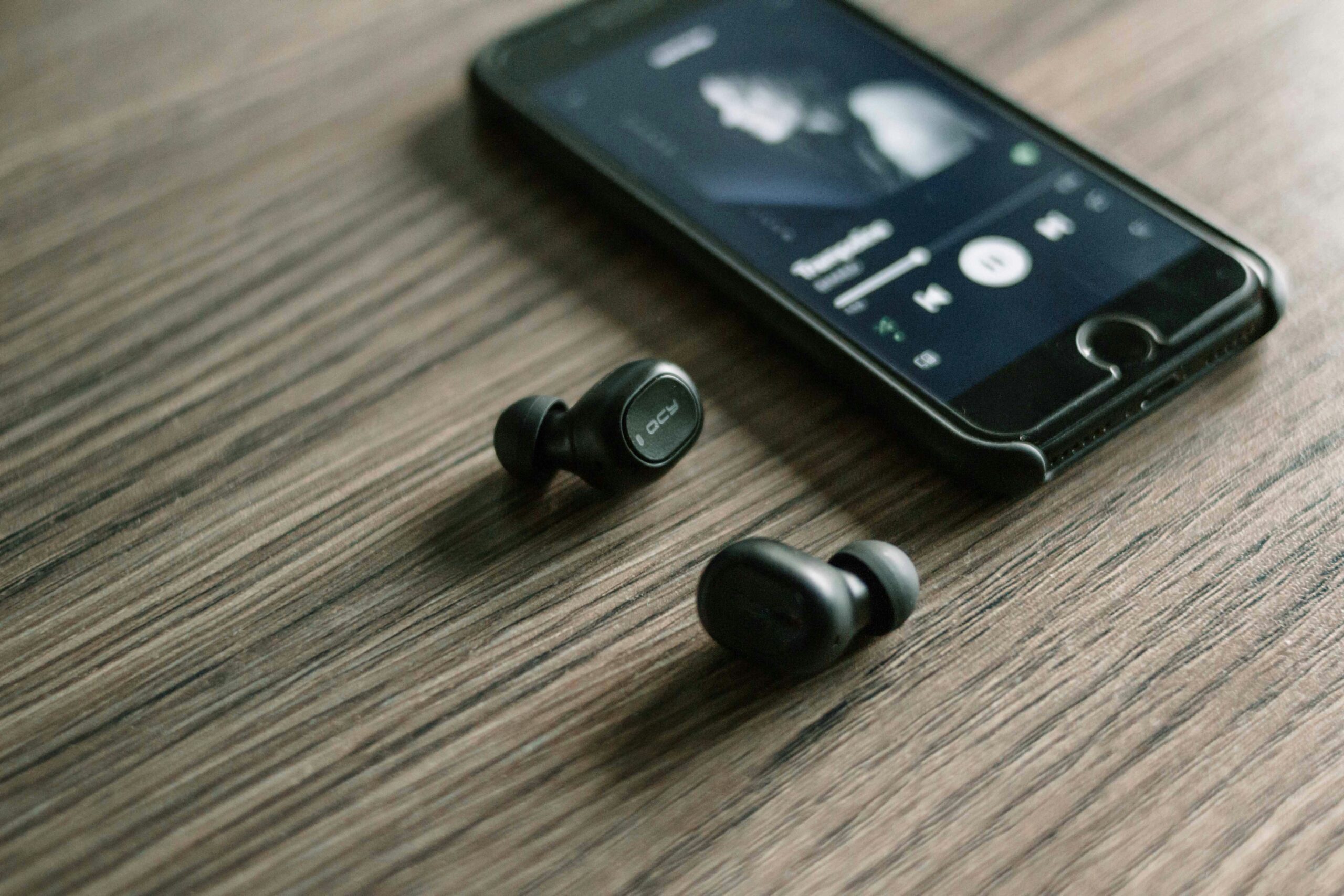Last time, I made a strong case for why you should still buy music CDs. So, it may seem odd that now I am going to tell you to stream your music with streaming services. Did I change my mind? Am I being a hypocrite? Aren’t you either Team Physical Music vs Team Digital Music?
The answer to that is no. Painting the way people listen to music as an either/or situation creates a false dichotomy. The truth is you should do both!
There’s no getting around it – streaming music is way more convenient than listening to physical media. You can listen to streaming music almost anywhere and while doing anything. The truth is that I don’t listen to the actual CDs that I buy; I immediately rip them to my computer so that I can stream them to my phone from anywhere.
In the previous article, I argued that the main reason to buy CDs is to support the artists. Streaming services pay lousy royalty fees (a little more than $.001 per stream on average) and the best way to support the artists you love financially is to buy their music and merchandise. I still stand behind that.
The truth is, though, that streaming platforms are here to stay. According to statistics gathered by Musical Purists, streaming services currently make up over 84% of the music industry’s revenue. And, this makes sense. You can pay the cost of a single CD every month and stream almost every song ever recorded whenever you want and from wherever you want to listen. It’s a hard deal to pass up.
As a CD collector, what place does subscribing to a streaming service have in my music listening habits? Of course, it has a number of personal benefits—access to millions of songs on demand, access to my music from anywhere, no need to store it, no need to maintain the streaming server, and no need to listen to ads.
I see my Spotfiy subscription a lot like I used to see radio stations. Before streaming, I would carry binders of CDs in my car and primarily listen to those. But when I wanted to listen to randomized songs, I would turn on a radio station. Radio stations also had access to a lot of music that I didn’t, so they supplemented my collection.
However, someone else benefits from me streaming music on Spotify, and that’s the artist. Remember, the number one reason I gave for buying CDs was to support the artists. And, this is the main reason I stream music on Spotify as well.
If we go back to our radio analogy, music being played on the radio is (really was) another revenue stream for musicians. Whenever a radio station plays a song, they have to pay the artist royalties. It’s the same for streaming services. Every time an artist’s song gets played, they are paid royalties.
When you play an artist’s songs on a streaming platform, it is a signal to that platform that people want to listen to a particular song. Because platforms know all of the songs you listen to, their algorithms will start suggesting songs you play to people with similar musical tastes. And, the more suggestions an artist gets, the more opportunities their music will be played. And the more their music gets played, the more royalties they earn.
I can understand if streaming platforms leave a bad taste in your mouth. They make a ton of money and pay the artists almost nothing. It hardly seems fair. But, streaming services are the number one way in which people get their music. Artists know this and put their music on streaming platforms because they want you – their fans – to listen to it on the streaming service. If the artists didn’t want you to stream their music, they wouldn’t put it in places for you to stream it. So, oblige them.
Let me give you an example how this works. One of my favorite metal bands to come out in the past few years is the band Brotality. These are three young, college-aged men trying to make a go of it in the music industry. They tour regularly and put out music regularly.
The type of music they play (old-school thrash mixed with groove metal) doesn’t get promoted on popular channels. So, they have to make a go of it on their own. Everything they do essentially comes out of pocket. They have to pay for the tours, they have to pay for the physical media to be created, and they have to pay for the music to be produced. Sure, a record label may front them the money to do some of that stuff. But, they have to pay the label back.
I want these guys to keep making great music. So, I bought a couple of their CDs. I ripped them to my media server so I have them whenever I want them. That’s a one-time financial contribution, though. So, the main way I listen to Brotality music is on Spotify. I do this because I want to kick them a little more whenever I listen. And, I hope that Spotify sees it as a signal that they should recommend the band to more people. And, thus, get them more money.
Could I live without my Spotify subscription? Probably. I could find free ways to listen to music I don’t own. But, music isn’t a consumable like food or toilet paper or laundry soap. Music is something different; music is something special. Music starts by someone expressing something and hitting the record button. Then they decide they want to share it with others. People ought to be paid for the things they create for us (1 Timothy 5:18). And, one way we can continually show our appreciation to the artists we love is by streaming their music.

David is an author and speaker with Legati Christi where he has written about and spoken on multiple apologetic and theological topics for the past 6 years. He recently launched Theology In Music as a way to combine his love of theology with his other passion in life – music.

Leave a Reply